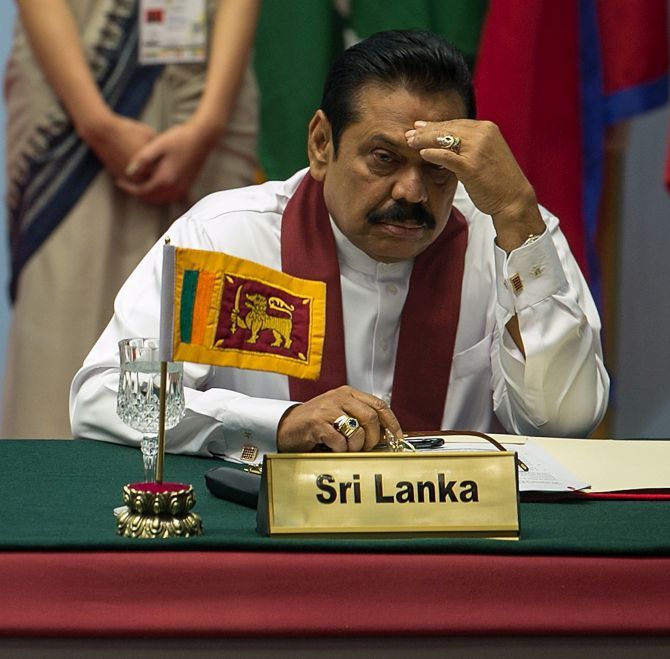
Sri Lanka's new government on Sunday said it will probe whether longtime president Mahinda Rajapaksa sought military help to cling to power after he realised that he had lost the closely contested election.
"The first thing the new cabinet will investigate is the coup and conspiracy by president Rajapaksa," Mangala Samaraweera, a spokesman for the government led by President Maithripala Sirisena, told reporters in Colombo. "He (Rajapaksa) stepped down only when the army chief and the police inspector general refused to go along with him."
Rajapaksa, 69, was widely lauded for conceding defeat in the presidential election on Friday, even before the last votes had been counted. By calling a snap poll, Rajapaksa was hoping to get a record third term in office. "We must tell our people what happened on the night when the votes were being counted. They have projected an image as if they gracefully stepped down and allowed a smooth transition. People think it was a peaceful transition. It was anything but...," Samaraweera said.
"Some world leaders are also supposed to have spoken with Mahinda (Rajapaksa) and prevailed on him to ensure a peaceful transition. I don't know who had spoken, but we know some countries had spoken to him."
Earlier, Rajitha Senaratne, the chief spokesman for the new president, said that Rajapaksa pressurised Army chief Lt Gen Daya Ratnayake to deploy troops after he lost election. "The army chief was under pressure to deploy but he did not. He declined to do anything illegal," said Senaratne.
"Even in the last hour, he tried to remain in office. Only when he realised that he had no other option, he decided to go," the spokesman said.
"We appreciate the straightforwardness of the army commander, inspector general of police and the commissioner of elections," Senaratne said, adding "They stood to uphold the democratic traditions for free and fair election."
"Inspector General Illangakoon was very vocal and did not want to be a party to this coup. The army chief also stood by the police. The attorney general warned Rajapaksa that there will be dangerous consequences," Samaraweeera said. There was no immediate comment from the military.
However, Rajapaksa's spokesman denied the claims as baseless.
"There was no such attempt at all," said Mohan Samaranayake. "In fact, at 3:30 am on January 9 when the counting was still under way, the president made an assessment and decided what the results would be," Samaranayake was quoted as saying by BBC.
"Then he gave instructions to all secretaries about a smooth transfer of power... The politician who has made these remarks is in the habit of making baseless allegations," he said.
Senaratne, who is tipped to become health minister, had refused to specify whether Rajapaksa himself tried to contact the military chief or used his younger brother Gotabhaya, who was the then defence secretary.
In the run up to the January 8 polls, the opposition leaders had alleged that the military was deployed to disrupt the polls in the Tamil-dominated areas. The military dismissed the allegations then.
Sirisena the new president received overwhelming Tamil support as voting was conducted peacefully in these areas.
Sri Lanka has been largely immune from military meddling in politics except for a failed 1962 coup. Since then, there had been no direct military role in politics.
Former army chief Sarath Fonseka, who unsuccessfully challenged Rajapaksa in 2010 presidential election, was sentenced to 30 months in prison for engaging in politics while still in uniform.
Rajapaksa, who amended the constitution soon after his victory in 2010 to give himself a third term, called the election two years ahead of schedule, hoping to win a record third six-year term.










